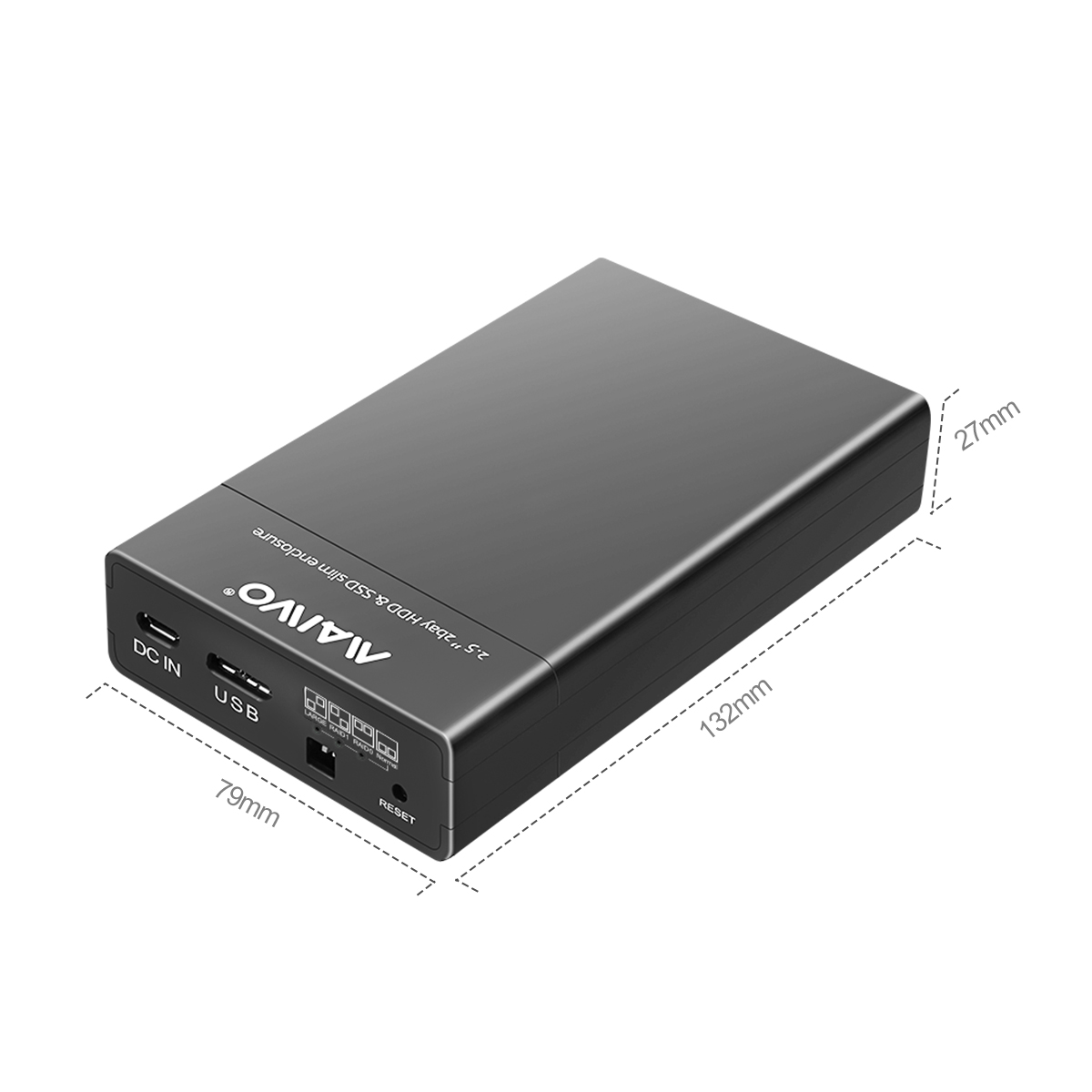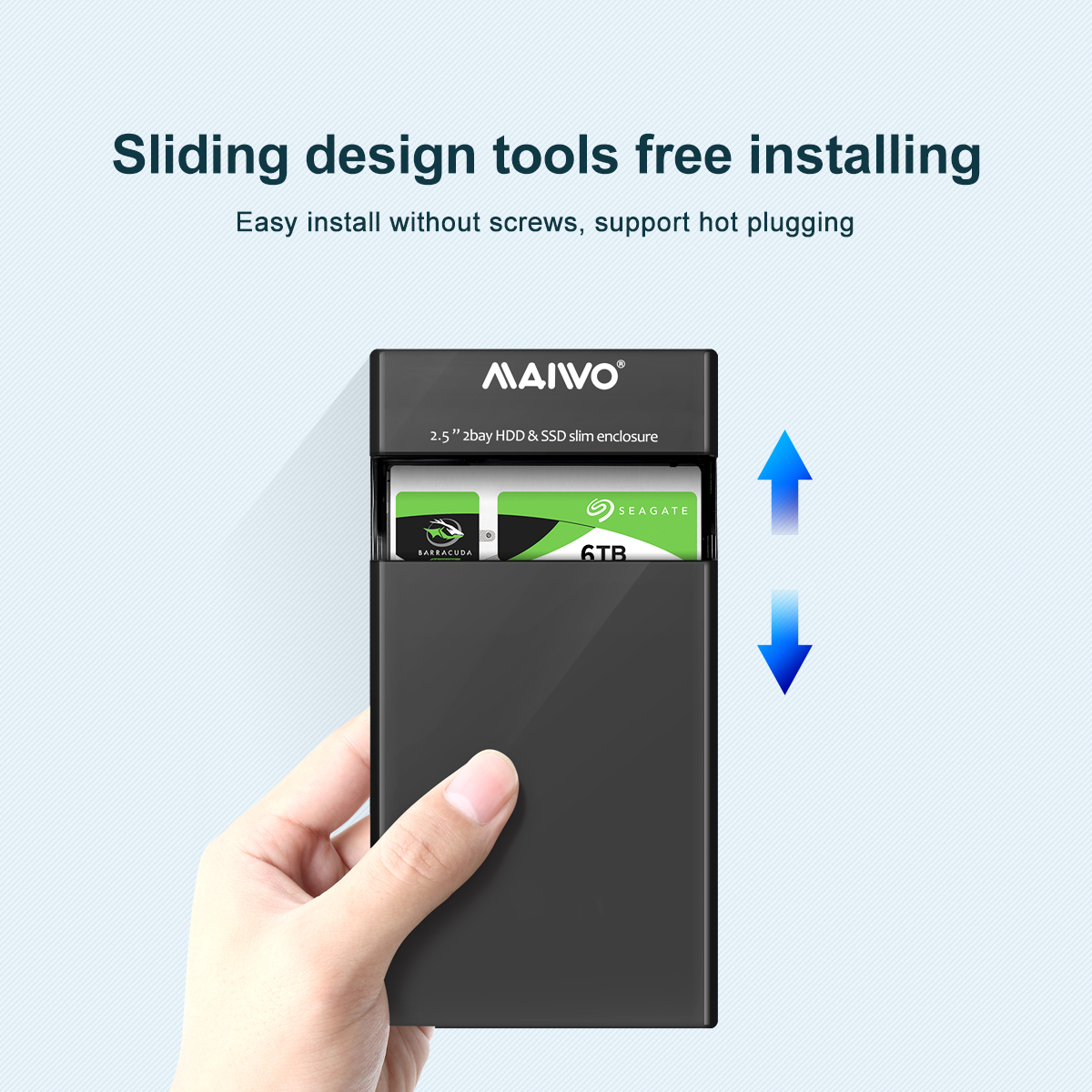Hard drive docks have become indispensable tools for computer users, offering a convenient way to access and manage data stored on internal hard drives and SSDs (Solid State Drives). While these devices provide numerous benefits in terms of data accessibility and storage flexibility, safety considerations are paramount to ensure the protection of valuable data and the longevity of storage devices. In this article, we'll explore the safety features of hard drive docks and how they contribute to data security and device protection. We'll also discuss the benefits of using hard drive docks with HDD enclosures and SSD drive enclosures.
A hard drive dock, also known as a docking station or HDD/SSD enclosure, is a device that allows users to connect internal hard drives and SSDs externally to a computer or other devices. These docks typically feature slots or bays where users can insert internal drives, enabling quick and easy access to stored data without the need for internal installations. Hard drive docks come in various configurations, including single-drive docks and multi-drive docks that support multiple drives simultaneously.


Overcurrent Protection:
Many hard drive docks are equipped with overcurrent protection circuitry, which prevents excessive current flow that could damage connected drives or other components. This feature safeguards against power surges or short circuits, minimizing the risk of damage to both the dock and the connected storage devices.
Overvoltage Protection:
Overvoltage protection helps prevent damage to connected drives by limiting the voltage supplied to them. This feature safeguards against voltage spikes or fluctuations in the power supply, which can occur due to electrical disturbances or faulty adapters.
Short Circuit Protection:
Hard drive docks may include short circuit protection mechanisms to detect and prevent short circuits caused by faulty cables or damaged connectors. This feature helps prevent damage to the dock and connected drives, ensuring safe and reliable operation.
Temperature Monitoring:
Some hard drive docks feature temperature monitoring capabilities to monitor the operating temperature of connected drives. This allows users to identify potential overheating issues and take corrective action to prevent data loss or drive failure due to overheating.
Built-in Cooling:
To help dissipate heat generated by connected drives during operation, some hard drive docks are equipped with built-in cooling fans or passive cooling solutions. These cooling mechanisms help maintain optimal operating temperatures and prolong the lifespan of drives, especially during prolonged use or heavy workloads.
Data Encryption:
Certain hard drive docks offer data encryption capabilities to protect sensitive data stored on connected drives from unauthorized access or theft. By encrypting data at the hardware level, these docks provide an additional layer of security to safeguard confidential information.
Compatibility with Drive Types:
Hard drive docks are designed to support various types of drives, including HDDs and SSDs, ensuring compatibility with different storage technologies and form factors. This versatility allows users to safely connect and access a wide range of drives without compatibility issues.
Portability:
HDD enclosures and SSD drive enclosures offer a portable solution for accessing and transporting data stored on internal drives. Users can easily connect and disconnect drives as needed, making them ideal for on-the-go storage and data transfer.
Data Backup and Recovery:
By using HDD enclosures and SSD drive enclosures, users can create backup copies of important data stored on internal drives, providing an extra layer of redundancy and protection against data loss.
Data Migration:
HDD enclosures and SSD drive enclosures facilitate data migration between different drives or systems, allowing users to transfer data quickly and efficiently without the need for complex installations.
Versatility:
HDD enclosures and SSD drive enclosures support various drive sizes and form factors, making them compatible with a wide range of storage devices. This versatility allows users to connect and access drives of different capacities and specifications with ease.
In conclusion, hard drive docks offer a convenient and versatile solution for accessing and managing data stored on internal hard drives and SSDs. By incorporating safety features such as overcurrent protection, overvoltage protection, short circuit protection, and temperature monitoring, hard drive docks help safeguard valuable data and protect connected drives from damage. When used in conjunction with HDD enclosures and SSD drive enclosures, hard drive docks provide users with a reliable and efficient way to access, backup, and transfer data securely, making them essential tools for computer users seeking flexibility, convenience, and peace of mind in data storage and management.